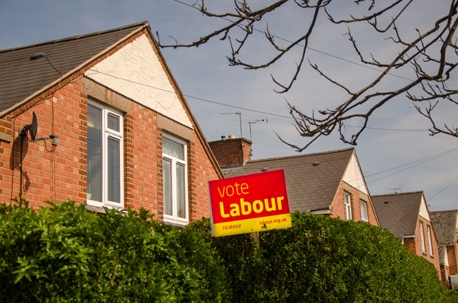Few people would disagree that the election of Jeremy Corbyn as leader of the Labour Party has altered the electoral landscape. The post-Thatcher consensus followed by all UK governments for the past 30 years – including those led by Tony Blair and Gordon Brown – is now threatened by the runaway victory of Corbyn in the recent Labour leadership election.
His detractors – including many Labour moderates – bemoan the electoral hopes of a party led by a far-left politician whose views are dismissed as both dated and dangerous; a throw-back to 1983 when Labour’s manifesto under Michael Foot was famously described as the ‘longest suicide note in history’.
His supporters, on the other hand, acclaim the election of a man who has reinvigorated politics by reaching out and giving a voice to those who feel disenfranchised. They contend that Corbyn is under-estimated and that his message around austerity being a political choice, rather than an economic necessity, will play well with huge swathes of the electorate.
Understanding the nature of Corbyn’s appeal and his chances of reversing Labour’s losing run at general elections is therefore of huge interest. Yet while much newsprint has already been expended on the potential impact of Corbyn across the UK, there’s been little focus on the target areas Labour needs to secure a majority.
Recent research from ICM in Labour’s top 20 most marginal seats highlights the freshness of his approach. ‘Corbymania’ is about being the opposite of what has gone before: representing specific people’s interests rather than attaining power ( 67% agree), and speaking up for ordinary people rather than tirelessly spinning the right impression ( 54% agree). Asking questions submitted by the public at Prime Minister’s Question Time in Parliament is a case in point.
But is this enough? Half ( 49%) the public do not think Corbyn is electable as a potential prime minister, including a quarter ( 27%) who voted Labour at the last election. Just three in 10 ( 30%) think he is electable, although this rises to 38% among 16- to 34-year-olds to underpin the claim that he is more inspirational to the young.
People also have no confidence in the new Labour leadership to deliver growth and jobs: twice as many support the Cameron-Osborne partnership as the Corbyn-McDonnell team to manage the economy properly ( 43% versus 19%).
This is not to say that Corbyn doesn’t have policies that are popular. His stance on higher taxes for the rich ( 65%) and re-nationalising the railways ( 57%) are two instances where his views chime with the public’s.
Nonetheless, a majority oppose his views on taking Britain out of NATO, imposing big cuts on the Armed Forces, printing money to spend on public services and replacing the nuclear deterrent, emphasising the policy challenges facing Labour if Corbyn is to enter Downing Street. Of course, this assumes that Corbyn will lead Labour into the 2020 general election. However, most people think his leadership will have ended by December 2018.
While the ‘obituaries’ for Corbyn’s leadership are probably being written too soon, there remains much for Comrade Corbyn to do to convince the public he is a credible alternative to David Cameron.
Gregor Jackson is research director, ICM Unlimited







0 Comments